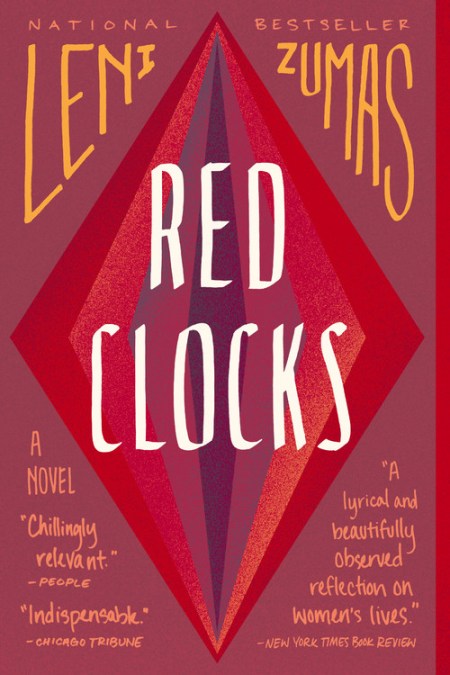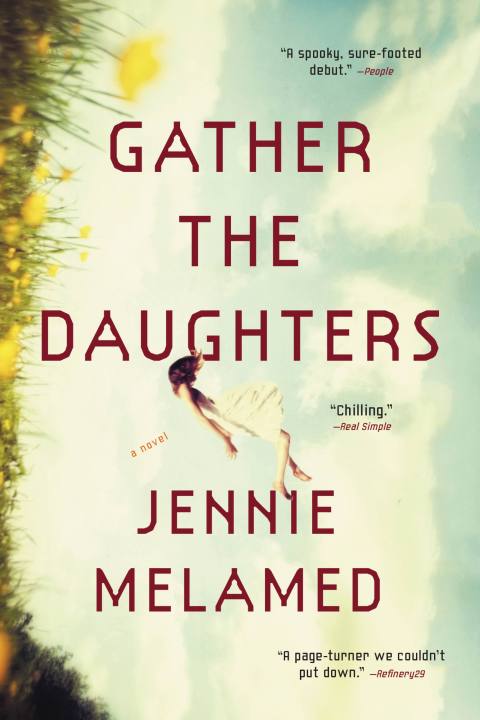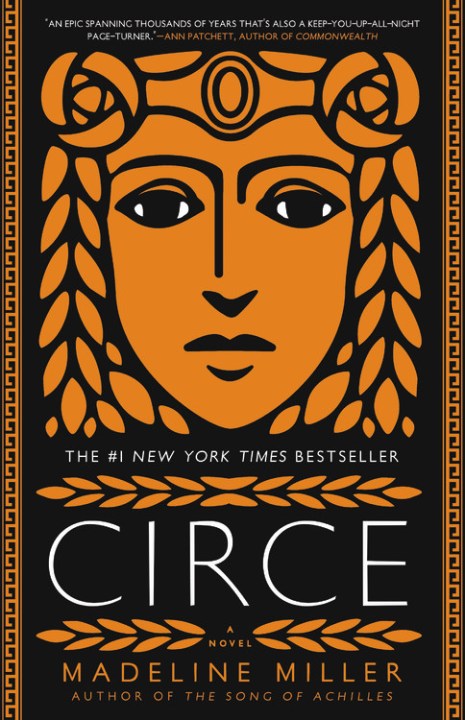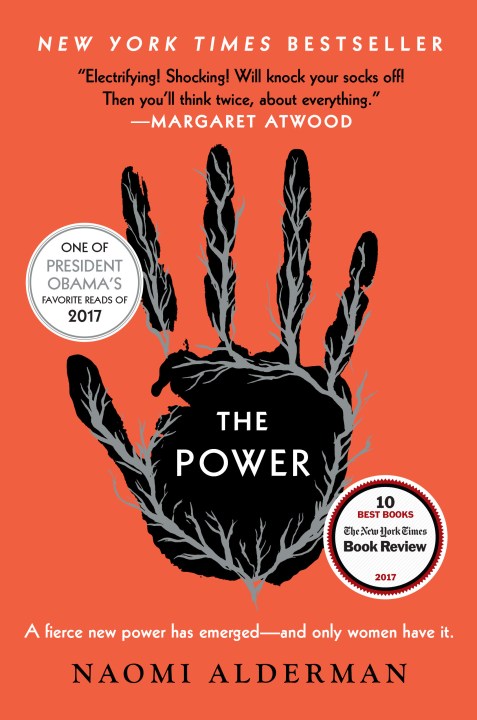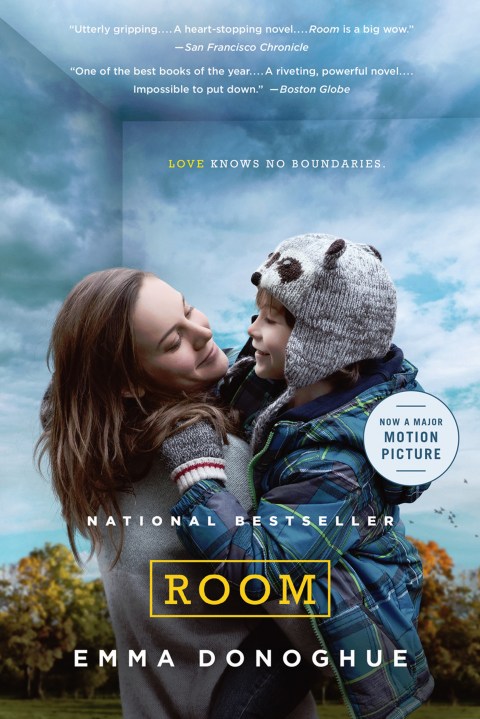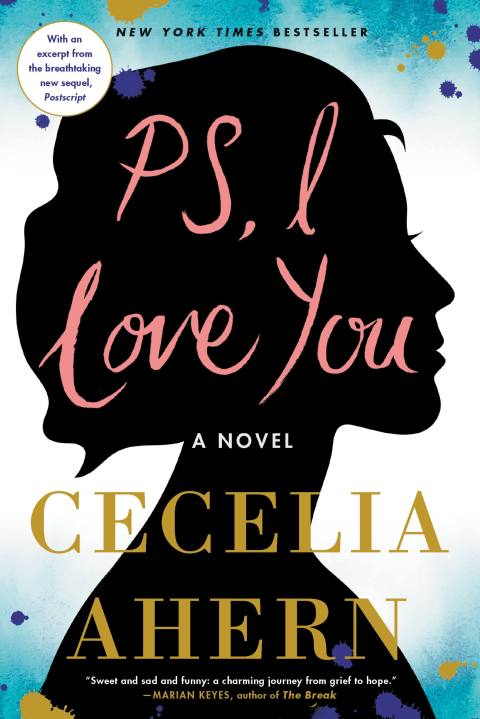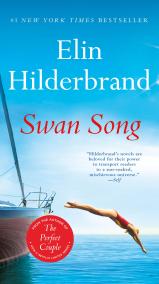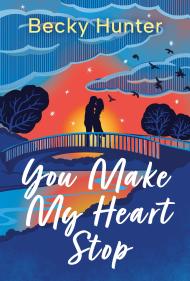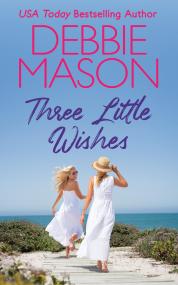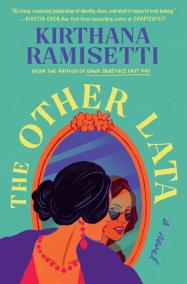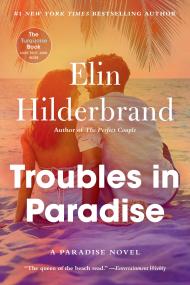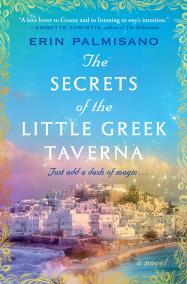Shopping Cart
Description
In this ferociously imaginative novel, abortion is once again illegal in America, in-vitro fertilization is banned, and the Personhood Amendment grants rights of life, liberty, and property to every embryo.
Five women. One question. What is a woman for?
In a small Oregon fishing town, five very different women navigate these new barriers alongside age-old questions surrounding motherhood, identity, and freedom. Ro, a single high-school teacher, is trying to have a baby on her own, while also writing a biography of Eivv?r, a little-known 19th-century female polar explorer.
Susan is a frustrated mother of two, trapped in a crumbling marriage. Mattie is the adopted daughter of doting parents and one of Ro’s best students, who finds herself pregnant with nowhere to turn. And Gin is the gifted, forest-dwelling herbalist, or “mender,” who brings all their fates together when she’s arrested and put on trial in a frenzied modern-day witch hunt.
Red Clocks is at once a riveting drama, whose mysteries unfold with magnetic energy, and a shattering novel of ideas. In the vein of Margaret Atwood and Eileen Myles, Leni Zumas fearlessly explores the contours of female experience, evoking The Handmaid’s Tale for a new millennium. This is a story of resilience, transformation, and hope in tumultuous — even frightening — times.
Five women. One question. What is a woman for?
In a small Oregon fishing town, five very different women navigate these new barriers alongside age-old questions surrounding motherhood, identity, and freedom. Ro, a single high-school teacher, is trying to have a baby on her own, while also writing a biography of Eivv?r, a little-known 19th-century female polar explorer.
Susan is a frustrated mother of two, trapped in a crumbling marriage. Mattie is the adopted daughter of doting parents and one of Ro’s best students, who finds herself pregnant with nowhere to turn. And Gin is the gifted, forest-dwelling herbalist, or “mender,” who brings all their fates together when she’s arrested and put on trial in a frenzied modern-day witch hunt.
Red Clocks is at once a riveting drama, whose mysteries unfold with magnetic energy, and a shattering novel of ideas. In the vein of Margaret Atwood and Eileen Myles, Leni Zumas fearlessly explores the contours of female experience, evoking The Handmaid’s Tale for a new millennium. This is a story of resilience, transformation, and hope in tumultuous — even frightening — times.
Praise
"[A] lyrical and beautifully observed reflection on women's lives.... Highly absorbing.... Zumas is a skillful writer, expertly keeping each of her characters in balanced motion, never allowing one to dominate the rest. Her cunning device of not revealing the name of each character in the sections she narrates grants us a multidimensional perspective on all four women, highlighting their roles in one another's stories. It's a beautiful metaphor for the interdependence of women's lives."
—Naomi Alderman, New York Times Book Review
"In an alarming peek into a dystopian future, a group of women navigates family and motherhood in an America that has outlawed abortion, in vitro fertilization, and adoption by single women. Each of the interwoven story lines is complex and heartbreaking in its own way, and overall it's a fascinating and unsettling exploration of the limits society can place on women's bodies."
—Samantha Irby, Marie Claire
"The story is set in a small Oregon town in a future that Mike Pence can almost see if he stands on his pew...This provocative exploration of female longing, frustration and determination couldn't be more timely, and yet there's nothing fleeting about it. With Red Clocks, Zumas has written a novel that's political without being doctrinaire, that expands the dimensions of our most pressing social debate."
—Ron Charles, Washington Post
"Intricate and alarming, Leni Zumas' riveting second novel, Red Clocks, arrives just in time....Wry and urgent, defiant and stylish, Zumas' braided tale follows the intertwined fates of four women whose lives this law irrevocably alters....Lit up with verbal pyrotechnics and built with an admirably balanced structure, Red Clocks is undeniably gorgeously written.... Indispensable."
—Chicago Tribune
"Zumas has written a work that's preoccupied with what it means to live inside a woman's body, and to exist in that body in a world that's long viewed it with fear and unease.... A thoughtful, complicated picture of womanhood-and a fierce argument for individual choice.... Red Clocks is relentlessly interrogative but always humane.... Red Clocks instead is deeply, intentionally personal. Rather than trafficking in sweeping generalizations or one-size-fits-all dictates, it focuses on the uniqueness of all of its characters, who are nevertheless linked by the immutability of their bodies. The familiarity of the book's world, just a step removed from our own reality, is the most shocking thing about it."
—Atlantic
—Atlantic
"An enchanting ramble through the myths and mundanities of womanhood.... "Red Clocks" ends up feeling like an enjoyable puzzle that is fundamentally unsolvable, some of its pieces playfully misplaced along the way. The fractured narrative leaves us to connect the dots between these disparate characters, all of whom make bleak compromises because they - like so many women throughout history - have so few options available to them."
—Los Angeles Times
"Hilarious, terrifying, and masterful--this pitch-perfect, timely novel reflects the horror and absurdity of our political landscape with a brilliance that ensures the book's timelessness. A poignant, wickedly sharp classic."
—Alissa Nutting, author of Made for Love and Tampa
"A cautionary work of far-sighted fiction.... Spooky-good."
—Elle
—Elle
"Chillingly relevant."
—People
—People
"This highly absorbing novel imagines a near future of America in which abortion is illegal in all 50 states. Zumas has a perfectly tuned ear for the way society relies on a moralizing sentimentalism to restrict women's lives and enforce conformity."
—New York Times Book Review, Editors Choice
"Leni Zumas here proves she can do almost anything. Her tale feels part Melvillian, part Lydia Davis, part Octavia Butler-but really Zumas's vision is entirely her own. RED CLOCKS is funny, mordant, political, poetic, alarming, and inspiring-not to mention a way forward for fiction now."
—Maggie Nelson
"Where a lesser writer might have delivered a shrill, one-sided polemic, Zumas draws us into the intersecting lives of five women in a profound exploration of our attitudes toward motherhood, freedom and life itself.... A page-turning plot is rendered in sentences as gorgeous and wise as poems...Be prepared to dog-ear these pages."
—Oprah.com
"Strange and lovely and luminous. I loved Red Clocks with my whole heart."
—Kelly Link, author of Magic for Beginners
"In bristling sentences, Zumas shows girls and women defying the excruciating restrictions imposed by both law and culture. Red Clocks is unabashedly political and fiercely humane."
—Emily Fridlund, author of History of Wolves
"Move over Atwood, Leni Zumas's Red Clocks is a gender roaring tour de force. The bodies of women in Red Clocks are each the site of resistance and revolution. I screamed out loud. I pumped my fist in the air. And I remembered how hope is forged from the ground up, through the bodies of women who won't be buried."
—Lidia Yuknavitch
"Zumas manages a loose yet consistently engaging tone as she illustrates the extent to which the self-image of modern women is shaped by marriage, career, or motherhood. Dark humor further enhances the novel, making this a thoroughly affecting and memorable political parable."
—Publishers Weekly
—Publishers Weekly
"The women in this suspenseful book resist. They will not be circumscribed. The effect on the reader is cathartic."
—Christine Schutt, author of Prosperous Friends
"I have never read stories like Leni Zumas's before and I can't get them out of my head. Her language is real sorcery-it dismantles the world you think you know and takes you to strange, fecund territories of the imagination. Sentence by sentence, Leni creates worlds so vivid and fever-bright that you forget you're reading words on a page and begin to see real plums, scars, black stars lashed to the bottom of canoes. Her characters are girls and boys in bad trouble, who feel as close to you and as far from you as the black sheep in your own family."
—Karen Russell
"Leni Zumas is a wonder, an alchemist, a witch. She brews a wild elixir in these stories, which take you where you never thought to go. Here are mothers infatuated with astronauts and dragons; here is a girl suckling elvers and owlets. Here is the body unspooling and nibbled at, the body undone and made fast again with the strength of the wish to be loved. Something's timely in these stories and hip, and yet they let us fall out of time. Fall into sorrow and be lifted again. What a blessing-to succumb to Zumas's power, to these gorgeous, beguiling songs."
—Noy Holland
"Zumas' novel is a reckoning, a warning, and nothing short of a miracle. Don't miss it."
—Ploughshares
—Ploughshares
"Zumas is a lyrical polymath of a writer: she loves wordplay and foreign terms, she has an ear for dialogue, and she knows an impressive amount about herbal healing, Arctic exploration, and the part of the U.S. her story is set in...A good story energized by a timely premise."
—Kirkus
—Kirkus
"Shattering.... With its strong point of view, the novel, in lesser hands, might have been reduced to agitprop, but Zumas has raised it, instead, to the level of literature, which readers will find deeply moving. The characters are beautifully realized, inviting empathy and understanding; the richly realized plot is compulsively readable, and the theme, with its echoes of Margaret Atwood, is never didactic but invites thought and discussion. The result is powerful and timely."
—Booklist, starred review
—Booklist, starred review
"In language both poetic and political, Zumas presents characters who are strong and determined; each is an individual in her own right. Inevitably, there will be comparisons to Margaret Atwood's The Handmaid's Tale, but Zumas's work is not nearly as dystopic or futuristic, only serving to make it that much more believable. Highly recommended."
—Library Journal (starred review)
"Zumas's female characters are resourceful in the ways they resist. Although it has a serious message about how women are valued by society, Red Clocks is essentially a comedy, using humor to highlight the absurdities of authoritarianism and to celebrate self-determination.... Zumas [has] tapped into a newly resurgent literary tradition, one less prophetic than cautionary. They and many of their fellow writers of speculative fiction convey the need to be alert to injustice - and to be prepared to act against it."
—High Country News
"Intense [and] beautifully crafted....The dialogue is so quick and multilayered as to take one's breath away.... Zumas elucidates, in virtuosic prose, the struggle to be valued running like a power line under every incarnation of feminism. Her talent is electric. Get ready for a shock."
—The Guardian
"Masterful.... This horror-show of a world is explored through the stories of five women: a single teacher who's using her last opportunities to try to have her own child; a frustrated mother; an adopted teen who finds herself pregnant; an introverted healer who provides illegal services in the woods; and a 19th-century female polar explorer. Their stories are stunning."
—Bookpage
"[Red Clocks] asks us to rethink what it really means to be female in a world that's written almost exclusively by men.... It is always nice when a novel forces me to revisit the foundation of my values. It's a little bit like rereading your favorite books, every decade or so.... For all its polemics, Red Clocks is actually most notable for the brio of its prose--its excellent sense of timing and cadence.... Time's a-ticking, this novel seems to say. Wake up."
—Fiona Maazel, Bookforum
"The book has a beautiful literary top over a highly relevant science fiction setting."
—Weekend Edition
—Weekend Edition
"This is the dystopia that the right wing wants...the characters in Red Clocks are nuanced and funny, and the novel itself is as in-your-face yet strangely beautiful as the cover art."
—Esquire.com
—Esquire.com
"Zumas' book stands out from the crowd for its thoroughness in revealing the hypocrisy inherent to valuing the lives a woman brings into this world, but not the life of the woman herself."
—Nylon
—Nylon
"Like Margaret Atwood in The Handmaid's Tale, Portland author Leni Zumas' new book describes a future both frightening and all too possible....[Zumas]has a lovely way with a sentence and a sharp understanding of how women can be jealous and supportive of each other in equal measure. The coastal setting is vividly rendered, as is the everyday reality of doctor appointments, dirty dishes and broken dreams."
—Seattle Times
—Seattle Times
"A book as lyrical as it is devastatingly honest, Red Clocks fast-forwards to the time after you've marched and called and voted, showing us all the complexities and pains of life in the aftermath."
—Refinery29
—Refinery29
"Somewhat in Margaret Atwood territory, but lower-key and closer to present-day reality, this is a vividly imagined work set in a sensual, three-dimensional world."
—Sunday Times
"The novel takes place in a United States only slightly extrapolated from our current one-and it's through this familiarity that the book derives its power....Zumas's decision to tell the story from four different perspectives is not just a stylistic flourish. Together, they form a raw portrait of the forces of disenfranchisement that women have faced for millennia. What gives Red Clocks its lingering pungency is how, despite each character's distinct circumstances, the same features-pregnancy, motherhood, and social expectations-trap and menace them all.... Luminous."
—The Nation
—The Nation
"Like the best dystopian fiction, Red Clocks is so close to reality that it feels almost prophetic; like the best fiction, it's highly inventive; with sharp, stark prose; strong characterizations; and an undercurrent of humor and hope... Red Clocks has drawn understandable comparisons to the work of Margaret Atwood, but I find the source of Zumas' epigraph, Virginia Woolf's To the Lighthouse, a more convincing parallel. That book, like this one, is concerned with the existential pain of a life's divergent branching, the numerous "other lighthouses" that exist in the shadow of the real one.... In revealing the true complexity of motherhood and abortion too often obscured by a rabidly misogynistic right wing, Red Clocks does something radical.... Red Clocks delivers a stark, clear truth about the existential quandary of being a person capable of ceding your body to the gestation of another body. It's an amazing thing to be able to do. It's a monstrous thing to force someone to do. And between these two extremes is where most of us live."
—Portland Mercury News
